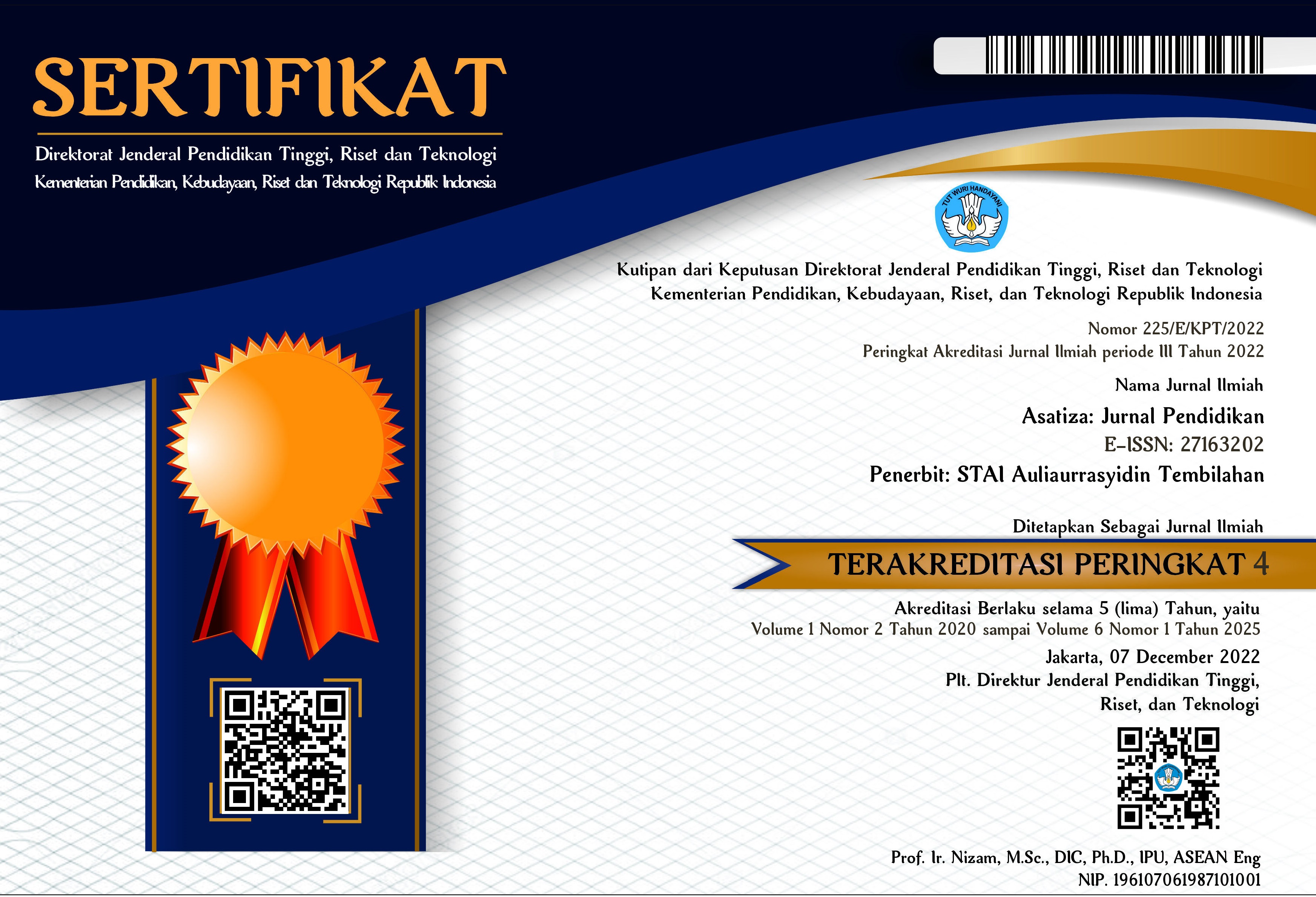Persepsi Mahasiswa terhadap Perkuliahan Daring Matakuliah Metode Numerik
DOI:
https://doi.org/10.46963/asatiza.v2i1.203Keywords:
Perception, online lectures, google form, numericalAbstract
This study was to explore informatics students' perceptions about the implementation of online lectures using the google form application. This was a descriptive case study involving 150 students of the 3rd-semester of the informatics program Universitas Indraprasta PGRI Jakarta Academic Year 2019/2020. The results were obtained through a questionnaire, interviews, and observations. The data analysis focused on student interpretation and reaction. The results of the questionnaire showed that 88% of students have positive statements, while another 12% were negative. The data also revealed that average students give a positive response to online lectures and they can use supporting applications of google form, they agreed that online lectures were very fun and effective during a stable internet connection. However, students needed to have face to face lectures to ensure their understanding.
Downloads
References
Batubara, H. H. (2016). Penggunaan google form sebagai alat penilaian kinerja dosen di Prodi PGMI UNISKA Muhammad Arsyad Al Banjari. Jurnal Pendidikan Dasar Islam, 8(1), 39-50. https://jurnal.albidayah.id/index.php/home/article/view/91/88.
Enriquez, G. (2014). Embodiments of “Struggle”: The Melancholy, Loss, and Interactions with Print of Two “Struggling Readers". Anthropology and Education Quarterly, 45(1), 105-122 https://doi.org/10.1111/aeq.12050.
Fernando, A. (2020). Respon Mahasiswa terhadap Proses Pembelajaran Biologi Melalui Google Classroom di Universitas Maritim Raja Ali Haji. Pedagogi Hayati: Jurnal Ilmiah Pendidikan Biologi, 4(1), 10-18. https://doi.org/10.31629/ph.v4i1.2335.
Kuntarto, E. (2017). Keefektifan Model Pembelajaran Daring Dalam Perkuliahan Bahasa Indonesia di Perguruan tinggi. Journal Indonesian Language Education and Literature, 3(1), 99-110. http://dx.doi.org/10.24235/ileal.v3i1.1820.
Nugroho, A. S. (2018). Pengembangan Ulangan Berbasis Android Menggunakan Aplikasi Google Form. Sitech : Jurnal Sistem Informasi dan Technology, 1(2), 89-94. https://doi.org/10.24176/sitech.v1i2.2758.
Rahardjo, H. M. (2010). Triangulasi dalam Penelitian Kualitatif. Malang: Universitas Islam Negeri Maulana Malik Ibrahim Malang.
Respati, W. S., Yulianto, A., & Widiana, N. (2006). Perbedaan konsep diri antara remaja akhir yang mempersepsi pola asuh orang tua authoritarian, permissive, dan authoritative. Jurnal Psikologi, 4(2), 119-138.
Sahidin, L., & Jamil, D. (2017). Pengaruh motivasi berprestasi dan persepsi siswa tentang cara guru mengajar terhadap hasil belajar Matematika. Jurnal Pendidikan Matematika, 4(2), 212-223. http://dx.doi.org/10.36709/jpm.v4i2.2034.
Sa’diyah, H., Utami, T. S., & Tianisa, W. T. (2016). Pengembangan media e-learning berbasis google form pada mata pelajaran Matematika Kelas VII di SMP Muhammadiyah Ahmad Dahlan 3 Depok. Seminar Nasional Pendidikan Matematika Ahmad Dahlan (SENDIKMAD), 1. http://seminar.uad.ac.id/index.php/sendikmad/article/view/17.
Sobron, A.N., Bayu., Rani., & Meidawati, M. (2019). Persepsi mahasiswa dalam studi pengaruh daring learning terhadap minat belajar IPA. Scaffolding: Jurnal Pendidikan Islam dan Multikulturalisme, 1(2), 30-38. https://doi.org/10.37680/scaffolding.v1i2.117.
Supriatna, R., & Afriansyah, E. A. (2018). Kemampuan Pemahaman Matematis Peserta Didik Melalui Cooperative Learning Tipe Pair Checks Vs Problem Based Learning. JPMI (Jurnal Pendidikan Matematika Indonesia), 3(1), 1-6. https://doi.org/10.26737/jpmi.v3i1.450.
Windhiyana, E. (2020). Dampak covid-19 terhadap kegiatan pembelajaran online di sebuah perguruan tinggi Kristen di Indonesia. Perspektif Ilmu Pendidikan, 34(1), 1 - 8. https://doi.org/10.21009/PIP.341.1.
Zhafira, H, N., Ertika, Y., & Chairiyaton, C. (2020). Persepsi mahasiswa terhadap perkuliahan daring sebagai sarana pembelajaran selama masa karantina covid-19. Jurnal Bisnis Dan Kajian Strategi Manajemen, 4(1), 37-45. https://doi.org/10.35308/jbkan.v4i1.1981.
Downloads
Published
Issue
Section
License
Authors who publish with this journal agree to the following terms:
1. Copyright on any article is retained by the author(s).
2. The author grants the journal, right of first publication with the work simultaneously licensed under a Creative Commons Attribution shareAlike 4.0 International License that allows others to share the work with an acknowledgment of the work’s authorship and initial publication in this journal.
3. Authors are able to enter into separate, additional contractual arrangements for the non-exclusive distribution of the journal’s published version of the work (e.g., post it to an institutional repository or publish it in a book), with an acknowledgment of its initial publication in this journal.
4. Authors are permitted and encouraged to post their work online (e.g., in institutional repositories or on their website) prior to and during the submission process, as it can lead to productive exchanges, as well as earlier and greater citation of published work.
5. The article and any associated published material is distributed under the Creative Commons Attribution-ShareAlike 4.0 International License











2.png)



